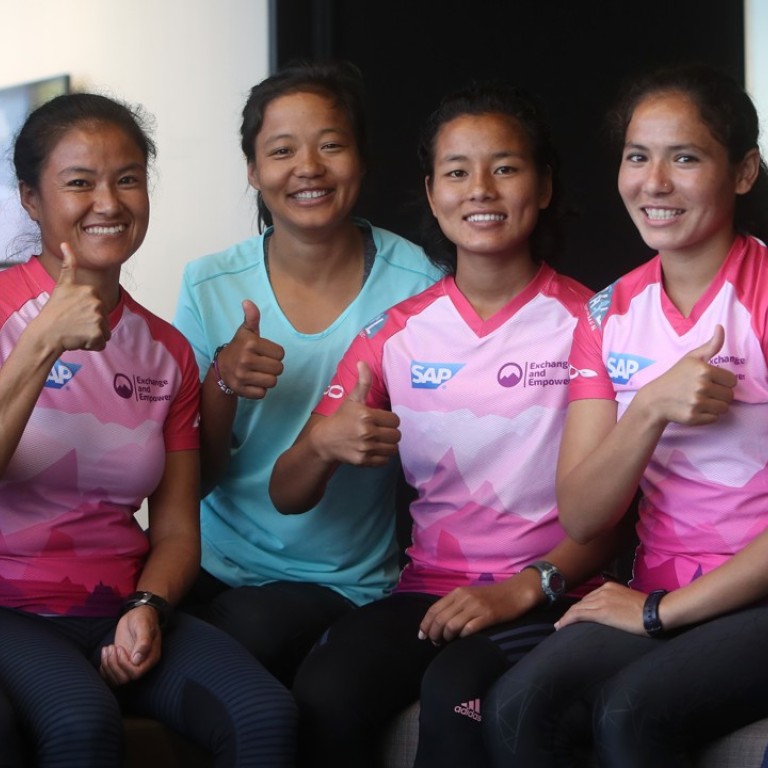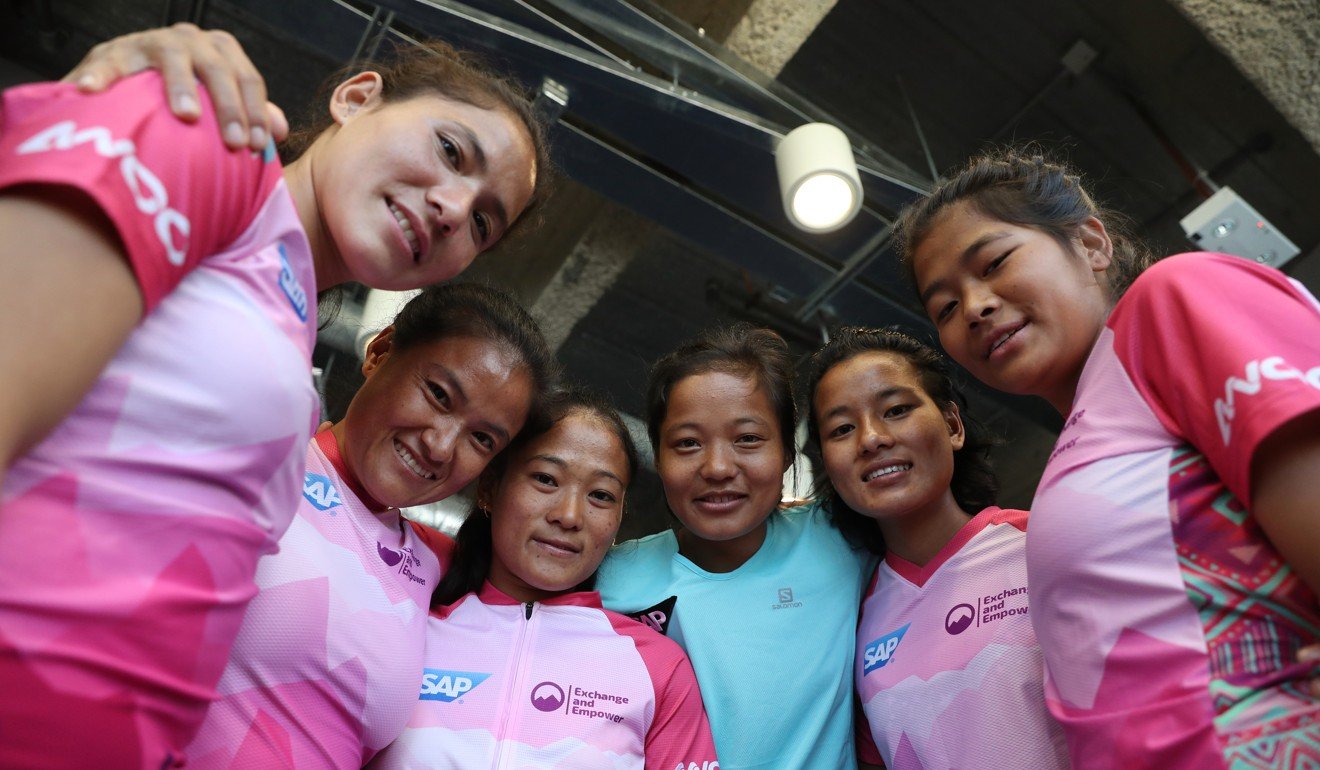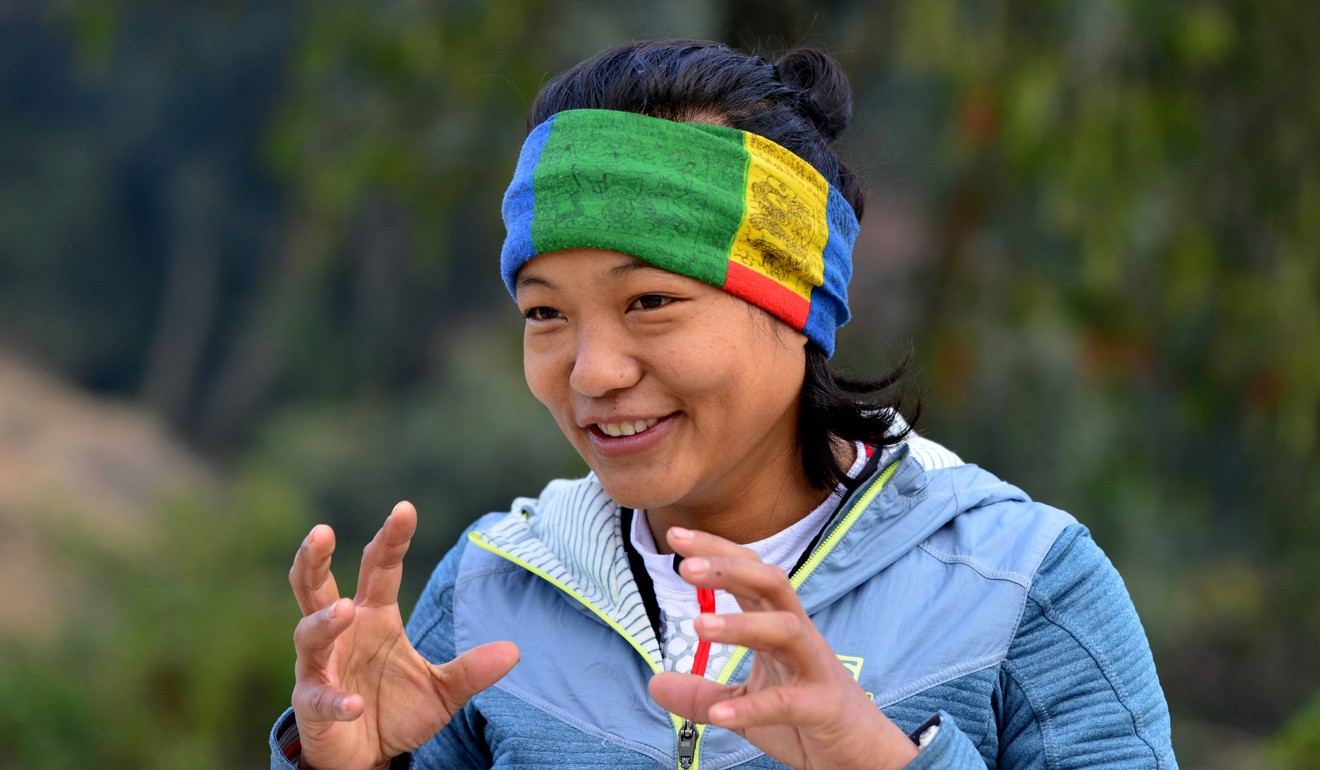
Oxfam Trailwalker: Mira Rai empowers the first Nepalese women’s team to run famous 100km in Hong Kong
- National Geographic adventurer of the year is giving Nepalese women the same life-changing opportunities
The first all-women team from Nepal will compete in the Oxfam Trailwalker (OTW) thanks to the country’s most famous runner, Mira Rai.
“Trail running changed my life,” Rai said. “I never expected I would do this kind of thing or be in Hong Kong, but I’ve been to America and all different places. It is amazing. It is incredible.”
Rai only started running five years ago, but has experienced a metronomic rise, culminating in winning National Geographic adventurer of the year in 2017. Her life is a far cry from her youth spent fighting in the Maoist army.
Rai wants other women to have the same opportunities so she started Exchange and Empower with the help of Hongkonger Keilem Ng and technology firm SAP.

“Running is very important. It is important to empower girls. We are always thinking we can’t do things, but if we try and we get opportunities [then it will change lives],” Rai said.
Rai selected five women and they joined her programme in April. They have been given help with their running and training, but also to qualify as guides and given intensive English lessons so they can seek outdoor employment when they graduate in March.
Humi Budha Magar, one of the five, said women felt like they were “down” in every situation.
“But we can do everything,” said Magar, who is a support runner for the team at OTW but is taking part in the Fields-Green Race the following weekend. “Mira has helped with everything. In Nepal, people are doing many things but they have no sponsors or opportunities. She gives opportunities to us.”
Magar is from a small village in midwest Nepal, and although she was making some money from road running she moved to trails after meeting Rai. She reached the podium in her first trail race in 2017.
Rashila Tamang’s journey to OTW is a tragic one. She lost her father when she was five and began to work in the fields when her mother became asthmatic. Tamang eventually moved to Kathmandu and finished second in a 5km race, losing only to Rai.
“Five years ago there were not many female ultra runners, but now there are many,” she said. “All females are Mira’s sisters.”
Chhoki Sherpa and Chhechi Sherpa Rai were domestic helpers. Both managed to train in between their busy schedules and racked up impressive performances even before they were invited to Rai’s programme.

Chhoki finished second in the Annapurna Mandala Trail 300km stage race and said “my life has changed” since joining Exchange and Empower.
Chhechi finished third in the mind-boggling 45-day 1,800km Great Himal Race.
Before the race, Chhechi said people did not take her seriously. “They did not believe that a woman – particularly after giving birth to a child – could accomplish such a feat. But since I completed the race, they look at me with respect. I feel proud.”
She has only once run in a team, during a race in Annapurna and the group suffered when one member was injured. “A team race is hard to manage,” she said.
Sunmaya Budha said she also had noticed a change in attitudes. “Many people say ‘wow’ and it makes me very happy. Women now want to run.”
The women will be dealing with the weight of expectation as Nepalese runners have a famous history at the Trailwalker, with the Gurkhas being the most feared competitors for years.
Team Awoo Nepal have won the last two races. They missed the record by three minutes in 2016 when they finished in 11 hours and one minute.
Team Awoo Nepal are back, but their members have changed because two of the runners are in the Democratic Republic of Congo on a United Nations mission.
They have been replaced by Uttam Khatri, who has already won OTW three times, and Suman Kulung, who finished seventh in the HK100, which follows a similar route.
“The record is not their goal,” said their sponsor, Milos Pintrava. “Their big goal is the hat-trick for Awoo Team Nepal.”
But for Rai and her crew, win or not, there is more at stake.
“When I started trail running, a very short time ago, women did not run but now they want to be like me,” Rai said. “They say, they want to run and they remember my name. It is amazing.”
You can donate to Rai’s programme here.

